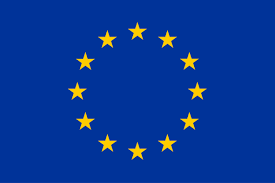BofAML _ informe economía Europa
Redacción - Viernes, 24 de Febrero Europe Economic Weekly: Window of opportunity • Political risks abound, but a window of opportunity to complete the monetary union could follow French and German elections. • We sketch out an ideal combination of tools to deal with structural issues to make the monetary union more credible. • Meanwhile, the UK economy is in a precarious position. We are pessimistic.
Europe Economic Weekly: Window of opportunity • Political risks abound, but a window of opportunity to complete the monetary union could follow French and German elections. • We sketch out an ideal combination of tools to deal with structural issues to make the monetary union more credible. • Meanwhile, the UK economy is in a precarious position. We are pessimistic.
With the market focusing on political developments, Europe looks ever trickier and riskier. Progress on the nagging "Greek problem" after last weekend has been much less substantial than initially trumpeted in our view, with the various actors weighing the reactions of their respective national public opinion; Italy's main party is fragmenting and France's election remains unusually open. While we review these various developments, we also want to make three positive points on Europe.
First, cyclical conditions continue to improve. We want to be cautious, since PMIs have sometimes painted a too rosy picture of the state of the economy, but we are currently tracking GDP growth of 0.6% qoq in Q1, thus creating an upside risk to our forecast of 0.4%. Not all political issues can be drowned in economic growth, but at least adverse cyclical conditions are not making things worse. Second, we do not think Germany is on the brink of a burst in core inflation. We look at the issue again. Yes, inflation drives wage growth there, but wages do not drive inflation much. In a very open economy, wage pressure tends to be absorbed in corporate margins. The hawks will lack an inflationary "smoking gun" for a lot longer, in our view. Third and that probably is our most positive message in a long while: yes, political risks abound, but we also see a window of opportunity opening for a proper completion of the monetary union after the French and German elections. In France, at least the focus is clearly on France's relationship to Europe. This will in our view force mainstream candidates to offer solutions to deal with the union's shortcomings. In Germany, while the focus currently is on the rise in voting intentions for pro-European SPD, we want to highlight that support for euro-sceptic AfD is fading. This may tilt the public debate in favour of a more open attitude towards fiscal union.
In this issue of our weekly we sketch out what would be an ideal combination of tools to deal with the Euro area' s structural issues, drawing on existing proposals. A "triad" of a Redemption Fund - allowing mutualization of excess debt, an Investment Fund, providing cyclical stabilization, and a form of mandatory OMT - preventing countries from damaging the financial stability and sustainability of the whole zone by delaying for too long the request of conditional support, would go a long way in making the monetary union more credible.
Chart 1: German opinion polls: General elections (September 2017)

[Volver]
- No compres lo que no entiendes
- MERCADOS:los beneficios o pérdidas empresariales de ayer no sirven para nada
- El efectivo sigue siendo ampliamente utilizado en la zona del euro por personas de diversos orígenes, incluso aquellos con tarjetas de pago y cuentas bancarias
- “Por cada dólar invertido en combustibles fósiles, se están invirtiendo actualmente $1,7 en energías limpias”
- Los valores cíclicos y defensivos son indicadores fiables del sentimiento de los inversores
- “La relación crecimiento/valor de Estados Unidos está poniendo a prueba una resistencia a largo plazo”
- MERCADOS:los beneficios o pérdidas empresariales de ayer no sirven para nada
- “La relación crecimiento/valor de Estados Unidos está poniendo a prueba una resistencia a largo plazo”
- El efectivo sigue siendo ampliamente utilizado en la zona del euro por personas de diversos orígenes, incluso aquellos con tarjetas de pago y cuentas bancarias
- No compres lo que no entiendes
- Los países del Golfo dirigiendo sus inversiones a minería
- Los valores cíclicos y defensivos son indicadores fiables del sentimiento de los inversores
- Se espera que $SPX registre un crecimiento interanual de las ganancias del 3,4 % para el primer trimestre de 2024, lo que está por debajo de las estimaciones








